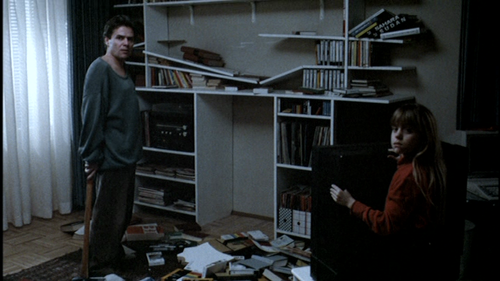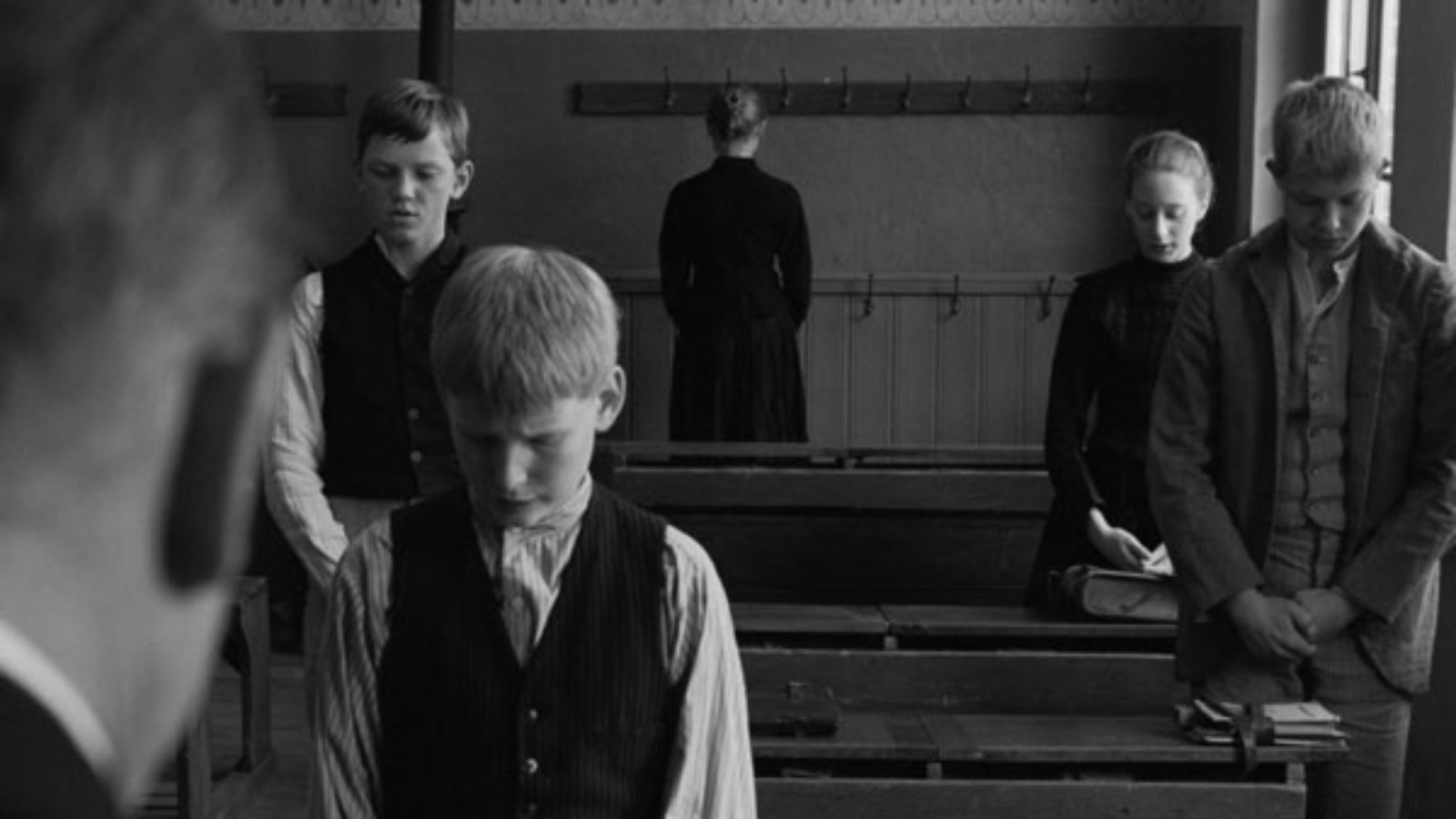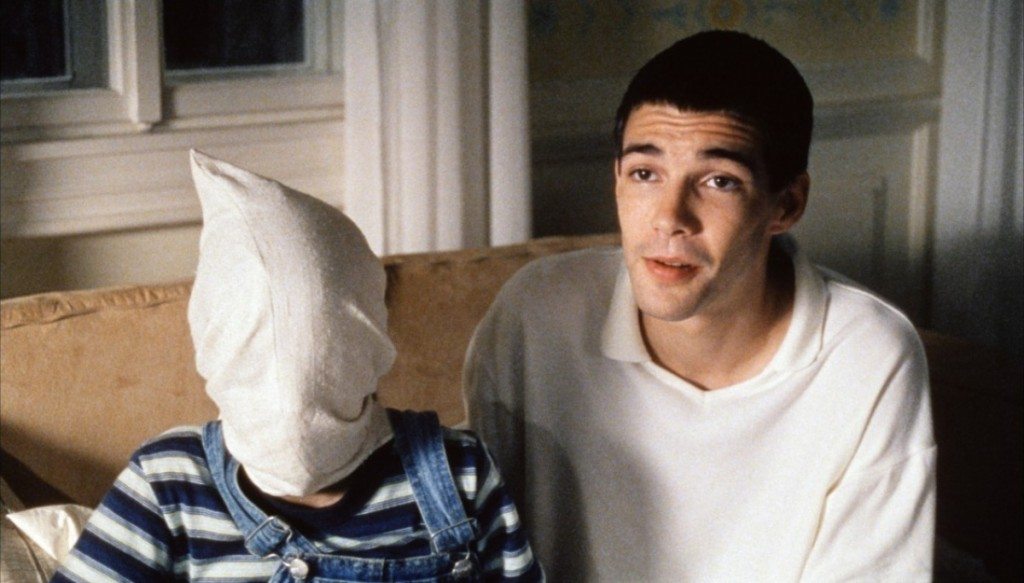“My films are intended as polemical statements against the American ‘barrel down’ cinema and its dis-empowerment of the spectator. They are an appeal for a cinema of insistent questions instead of false (because too quick) answers, for clarifying distance in place of violating closeness, for provocation and dialogue instead of consumption and consensus.” —Film as Catharsis, Michael Haneke
Michael Haneke is a filmmaker whose name alone can evoke a plethora of emotions in me that are impossible to quantify into words. Discovering his cinema has been a turning point in my journey as a cinephile; moving me, scarring me and essentially changing me for better or for worse. Arguably the greatest auteur working today, Haneke is one of those rare filmmakers who cinema burns itself into your psyche, slowing tightening its hold on you until you are unable to breathe. To me, his movies are horrifying – almost all of them have been traumatizing and have kept me awake at nights. I certainly don’t enjoy his cinema – his movies aren’t meant to be enjoyed, they are intended to awaken your conscience and show you the mirror to your own ugly reality.
A film critic himself before he turned to film-making, Haneke is a fiercely opinionated man, someone who doesn’t shy away from baring his thoughts on his contemporaries and their cinema. He has publicly expressed his disregard for the brain-dead consumerism of Hollywood and has critiqued the glorification of violence. His ire has particularly targeted American filmmakers like Quentin Tarantino who he accuses of turning despicable violence into a comedic device and for making the abhorrent consumable. I find his opinions quite interesting, more so because they are especially revealing with regards to the moral compass of his cinema and their portrayal of violence.Michael Haneke’s Exploration of Violence, Explained
While Tarantino is regarded as the master of portraying violence on screen, it is his vocal detractor Haneke who does it better. His portrayal of violence isn’t restricted to particular scenes or shots, they are present throughout his movies; in a way, I perceive all his movies to be an exploration of violence – the philosophy, the psychology and the morality of it. And it is this exploration of violence that weaves all his films together, as he grapples with its transgressive nature and how it can slowly envelop you like a blanket of poisonous air.
Haneke’s violence isn’t physical – it is emotional, psychological and more disturbing, and that is what makes it so compelling. And here, I have attempted to scratch the surface beneath six of his greatest films and how each of them are, in essence, a study of violence, evil and brutality.
Violence in a Quotidian Existence – The Seventh Continent (1989)

Michael Haneke delivers one of the most fiercely authoritative debuts I have ever seen with ‘The Seventh Continent’, one of the most horrifying films ever made. Not a horror movie in the conventional sense, ‘The Seventh Continent’ chronicles the mental breakdown and emotional dissonance of a middle-class Austrian family. To say any more about this terrifying gem would rob you off the experience but suffice to say the movie slowly and lovingly wraps itself around you, before constricting you into mush. The movie takes its inspirations from classics like ‘L’Avventura’ and ‘Jeanne Dielman 23 Quai du Commerce 1080 Bruxelles’ as we see a family trapped under the ennui of everyday existence deciding to take things into their own hands. There is very little physical violence shown in the movie, and it is nowhere as emotionally traumatizing as the air of existential dread that oozes out of every frame, and how it can drive people off the edge. ‘The Seventh Continent’ is a harrowing work of art, one that will disturb you to the core.
Violence in the Media – Funny Games (1997)

The audacity – the sheer audacity of the man! In ‘Funny Games’ – one of his most controversial films – Haneke invites us in, makes us all cozy and comfortable, before he goes on to give us a strong admonishment for watching the very film he invited us into. There are numerous instances in ‘Funny Games’ where I wished I had walked away. But alas, I couldn’t; just as Haneke predicted, I was enamored by what I was being shown, and despite the obvious discomfort, I continued being a willing partner in the perverted game that Haneke was playing. A psychological home invasion thriller, ‘Funny Games’ follows an upper-class bourgeoisie family on a holiday, where they are held hostage by two young men and tortured with sadistic games. Haneke takes his inspiration from classic home-invasion exploitation films and turns them on their heads as he mocks the culture of consumable violence that has enveloped our cinema and entertainment. A response of sorts to the stylized and “entertaining” violence in ‘Pulp Fiction’, Haneke repeatedly breaks the fourth wall as he mocks our obsession with brutality and how our media and entertainment industry has made it look cool and hip for the masses.
Violence of Sex and Desire – The Piano Teacher (2001)

Featuring one of the greatest performances in cinema history by the great Isabelle Huppert, ‘The Piano Teacher’ is a psycho-sexual drama following the life of a sexually repressed middle aged woman who catches the attention of a young pupil. As with most Haneke films, there is nothing likable about the characters – we only see despicable people here, but he still manages to evoke in us a sense of sympathy for an obnoxious woman confronted with a controlling mother and a penchant for self-harm. It’s disquieting how Haneke turns something as invigorating and exciting as sexual desire and turns it into a violent, voyeuristic fetish that is both distressingly captivating and harrowing. With ‘The Piano Teacher’, Haneke paints a brilliant portrait as to how violence has creeped into our personal lives and controls both our physical and emotional desires.
Violence in the Society – Caché (2005)

Arguably the best film from the Haneke’s distinguished oeuvre, ‘Caché’ offers us one of the greatest mysteries in cinema history. A psychological drama that follows an upper middle class Parisian family being terrorized by a set of anonymous tapes alluding to the husband’s disturbing childhood, ‘Caché’ is one of the greatest films I’ve ever seen. Much like Haneke’s other works, nothing is what it seems here, but as we peel the layers and scratch beneath the surface, it is not just disturbing secrets of the characters that are revealed; rather, a nation’s and a society’s veil of ignorance and apathy too are lifted as we are confronted with their violent past. ‘Caché’ was instrumental in uncovering the wounds of the Siene River Massacre during the Algerian War and the French government’s decades long denial of the tragedy. Haneke strips the façade of social ignorance of the bourgeoisie in Western society, while embarking on a provocative exploration of the violence that exists in our society and we how we choose to ignore it, and keep it Caché (hidden). And at the end, the mystery in the film fails to offer a conclusive resolution, and all we can do is follow the protagonist’s lead as he calmly returns home, gets undressed, draws the blinds and goes to sleep! That’s it.
Violence in the Establishment – The White Ribbon (2009)

With ‘The White Ribbon’, Haneke delves into the root of evil as we follow the life in a German village a year before the World War I. Haneke is quite unflinching in his portrayal of the brutality and inhumanity at its basest. An allegory of sorts to the kind of political and religious terrorism that plagues us today, we see how violence and savagery emanates from within us and how it has always been intrinsic to our existence. Shot in black and white, ‘The White Ribbon’ is disturbingly haunting in how it strips off the veneer of innocence and purity and uncovers the hate and diatribe beneath. Set in 1913, before the horrors of Nazi Germany and the Holocaust, Haneke not only alludes to monstrosities that were to follow, but also makes a larger point of rebuking the blind devotion that exists in any ideology, religious or political; it could have been Islamic terrorism or radical white nationalism or any other ideology that discourages compassion and humility. Haneke paints a towering portrait of the oppression of the establishment and how we are all trapped under a system that is willing to go to any extent to hold on to power.
Violence in Love – Amour (2012)
Love is the most beautiful of emotions; it also happens to be the most painful one. There is never love without suffering, and Haneke knows it all too well as he crafts one of the most emotionally harrowing heart wrenching movies in recent years. Amour, in French means love, and Haneke fearlessly portrays the agony and miseries of love in way that could very well tear you apart. Following the life of a loving octogenarian couple whose lives are thrown into disarray after the wife suffers a silent stroke that leaves her paralyzed, ‘Amour’ is not just a movie about love, it personifies the plethora of emotional complexities that love brings with it. Love can not only complete us, it can also slowly eat you away and leave us debilitated; and Haneke brings out the brutality in love with a humanity that could melt you. Love is a very powerful aphrodisiac and Haneke brilliantly portrays how it can force you into the darkest of depths, from where there no coming back. The sheer humanity of ‘Amour’ quite unlike the cold aloofness that has become a hallmark of Haneke’s cinema, but that is what makes the brutality in it so viscerally powerful.
I think I can safely say that nobody has ever explored the violence of the human existence with the finesse and raw emotional power of Haneke. Quentin Tarantino glamorized violence for a generation of cine-goers, but Haneke dug deep into the gut-wrenching savagery and unspeakable barbarism of violence. His cinema is not easy to love, but they dig a hole so deep in your heart that will forever remain irreparable, and for a cinephile to bear witness to that kind of power, it is nothing short of a miracle.
Read More: Best Movies of Quentin Tarantino

